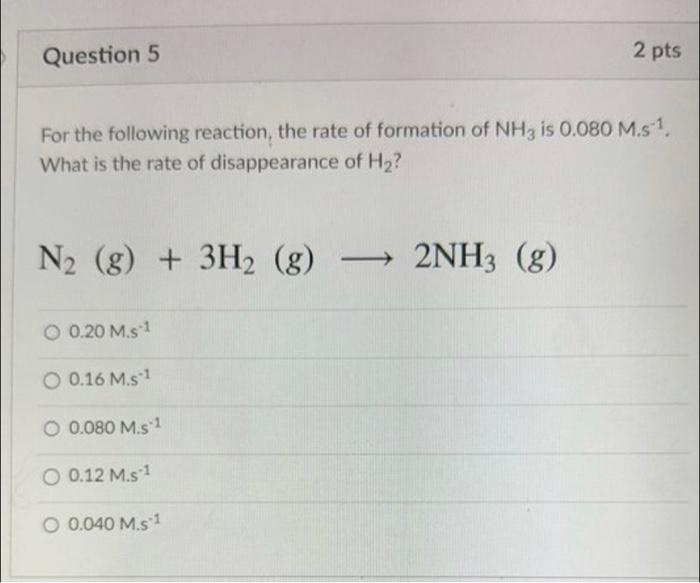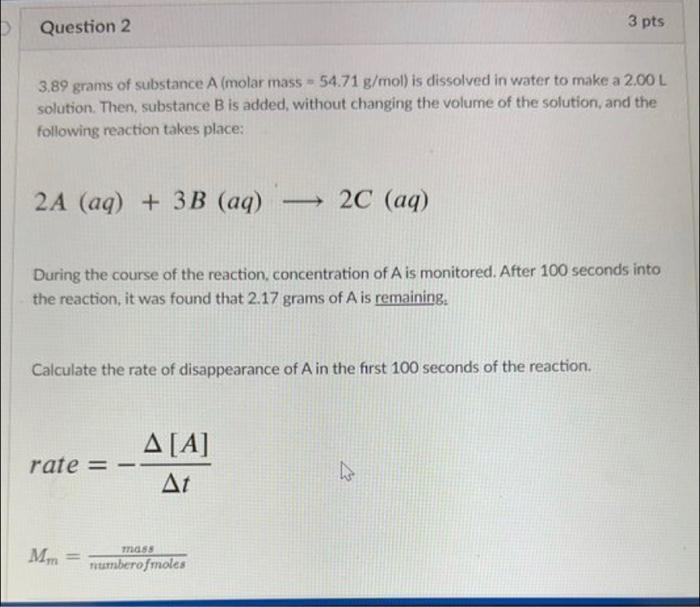Answered step by step
Verified Expert Solution
Question
1 Approved Answer
plss help For the following reaction, the rate of formation of NH3 is 0.080M.s1. What is the rate of disappearance of H2 ? N2(g)+3H2(g)2NH3(g)0.20M.s10.16M.s10.080M.s10.12M.s10.040M.s1 3.89
plss help 


Step by Step Solution
There are 3 Steps involved in it
Step: 1

Get Instant Access to Expert-Tailored Solutions
See step-by-step solutions with expert insights and AI powered tools for academic success
Step: 2

Step: 3

Ace Your Homework with AI
Get the answers you need in no time with our AI-driven, step-by-step assistance
Get Started


